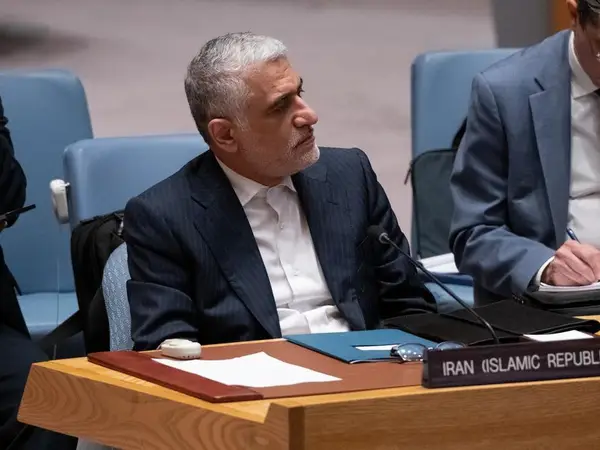While Iran's UN envoy says Tehran is prepared to resume talks over the 2015 nuclear deal, a seasoned ex-diplomat says Tehran should accept the Western terms.
Former Iranian diplomat, Fereydoun Majlesi told Rouydad24 website in Tehran that "Iran can either accept the West's solution or follow its own path and be prepared for its consequences."
Referring to higher oil exports by Iran, he said: It is true that the restrictions imposed on Iran by the United States are getting weaker on a daily basis, but this should give no reason to Iran to continue its hostile behavior."
He explained that "In fact, Iran has restricted itself."
He also touched upon another aspect of Iran's approach to negotiations. Majlesi said: "Raisi administration's negotiators do not wish to fight the West, but at the same time, they refuse to accept the rules of negotiations. They do not know what to do and that has led to a halt."
"The three European countries in the JCPOA have declared that Iran has violated the agreement. The West believes that Iran's missile development was against the terms of the JCPOA. Some even believe that Iran is potentially very close to producing a nuclear bomb. Therefore, the minimum precondition by the West is returning to the JCPOA as it was under President Hassan Rouhani," Majlesi maintained.
He added: "The point is that a country which is under serious pressures and its case is going to be referred to the UN Security Council can hardly set a precondition for negotiations." He added that Iranian officials should realize that the people are suffering under these pressures, so the government has only two solutions ahead: Accept the West's terms or pay for their own final solution.
Etemad Online in Tehran quoted Iran's ambassador to the United Nations, Amir Saeed Iravani as saying that Tehran's space and missile programs and regional issues do not fall within the scope of UN Resolution 2231, adding that "We are prepared to resume the negotiations to return to the JCPOA as soon as possible and to ensure its full compliance by all parties involved."
Resolution 2231 was related to the JCPOA nuclear agreement and restricted Iranian weapons capable of carrying nuclear weapons. Western powers are lately arguing that Iran is in violation of the agreement, among other things, by delivering drones to Russia.
Meanwhile, Iravani expressed strong objections to the participation of Ukraine's UN ambassador in the July 6 meeting about non-proliferation and the JCPOA. "We strongly protest to the UN Security Council Chief for inviting a country that has nothing to do directly or indirectly to the meeting's agenda. This was neither constructive nor indicative of goodwill," he said.
He described inviting Ukraine's representative to the meeting, "an attempt to divert attentions from the agenda which was discussing implementing the JCPOA and Western side's non-compliance to the agreement particularly the United States' withdrawal from the deal."
He further insisted that Washington should be recognized as the party responsible for the current situation as it has withdrawn from the 2015 deal. Iravani added that the three European partners of the JCPOA have neglected their commitments under the deal and Resolution 2231. He said the United States has arrogantly forced other UN members to violate Resolution 2231. "this is unprecedented," Iravani said.
Under the circumstances, Iravani said, Iran has no choice other than adopting countermeasures to restore its rights under paragraphs 26 and 36 of the JCPOA. "It was the United States and not Iran that left the agreement," he said, adding that whatever Iran has done as her reaction is revocable once the agreement is restored.
